It Takes Two
In its early years the Ruskin Pottery made a number of small items which attracted the attention of some of the metal working firms, principally Liberty & Co. but also the Birmingham Guild of Handicraft, Syner & Beddoes and Levi & Salaman. The small pieces in the Ruskin early catalogue “Forms In Pottery” were the subject of designs in silver to create inkwells, peppers and mustards. Birmingham Assay Office hallmarks begin on such pieces with the date letter “a” for 1900, though many date from the following year.
A.E Jones Ltd. established by Albert Edward Jones in the Holloway Head, Birmingham in 1902 is the most important of the individual Birmingham metal working firms in the Arts and Crafts style particularly for its association with the Ruskin Pottery of Edward and William Howson Taylor. Jones registered a mark with the Birmingham Assay Office on 1st December 1902. The small unit he was able to finance had two employees F. Leonard Temple and Edward Colston Harris and their early work was in copper. Silver pieces with the small pottery roundels which Ruskin had started to produce appear in 1903. These include a set of silver buttons, a vase and a preserve jar and spoon. More designs followed in the 1904-1906 period, some by associate designers Bernard Cuzner and Annie Stubbs. There was a close working relationship between Jones and Jesson, Birkett and Company formed in 1904 with Thomas Birkett as a partner, it being a follow on from the Faulkner Bronze Company. In about 1905-6 Jones acquired access to the Faulkner Bronze process of colouring copper and pieces using this were produced by both Jones, Jesson and Birkett.
The fashion for such pieces declined after 1906. The firm of A. Edward Jones did continue to mount Ruskin ware up until the First World War, providing silver rims for bowls and introducing in 1911 a cruet set in silver using small Ruskin bowls as liners for the salt and mustard. In 1928 Jones collaborated with Ruskin in producing a copy of a 16th century metal mounted bowl presented by Archbishop Warham to New College, Oxford. At the end of the Ruskin Pottery’s life Jones purchased some of the unsold stock, mainly bowls which he mounted with Celtic style strap work, joining rim and base. The firm bought bowls producing similar designs.
Other metal working firms besides Liberty, Jesson and Birkett Company and A.E. Jones Ltd. to employ Ruskin pottery include the Sheffield firm of James Dixon in pewter range and William Hutton in silver.

Jesson and Birkett candlestick holder with applied Ruskin roundels circa 1904/5 
Ruskin pottery jug with strap-work by Jesson and Birkett circa 1904/5, scissor mark to base. 
Faulkner bronze & Co. ink stand with Ruskin liner. 
A. E. Jones cruet set with Ruskin liners. 
Liberty and Co ‘cymric’ range of smalls, incorporating Ruskin bodies circa 1900/1.

Pages from the A. E. Jones catalogue circa 1905, with illustrations of Ruskin enamels applied to the silver-work. 
Pages from the A. E. Jones catalogue circa 1905, with illustrations of Ruskin enamels applied to the silver-work. 
Pages from the A. E. Jones catalogue circa 1905, with illustrations of Ruskin enamels applied to the silver-work. 
Pages from the A. E. Jones catalogue circa 1905, with illustrations of Ruskin enamels applied to the silver-work. 
Pages from the A. E. Jones catalogue circa 1905, with illustrations of Ruskin enamels applied to the silver-work.
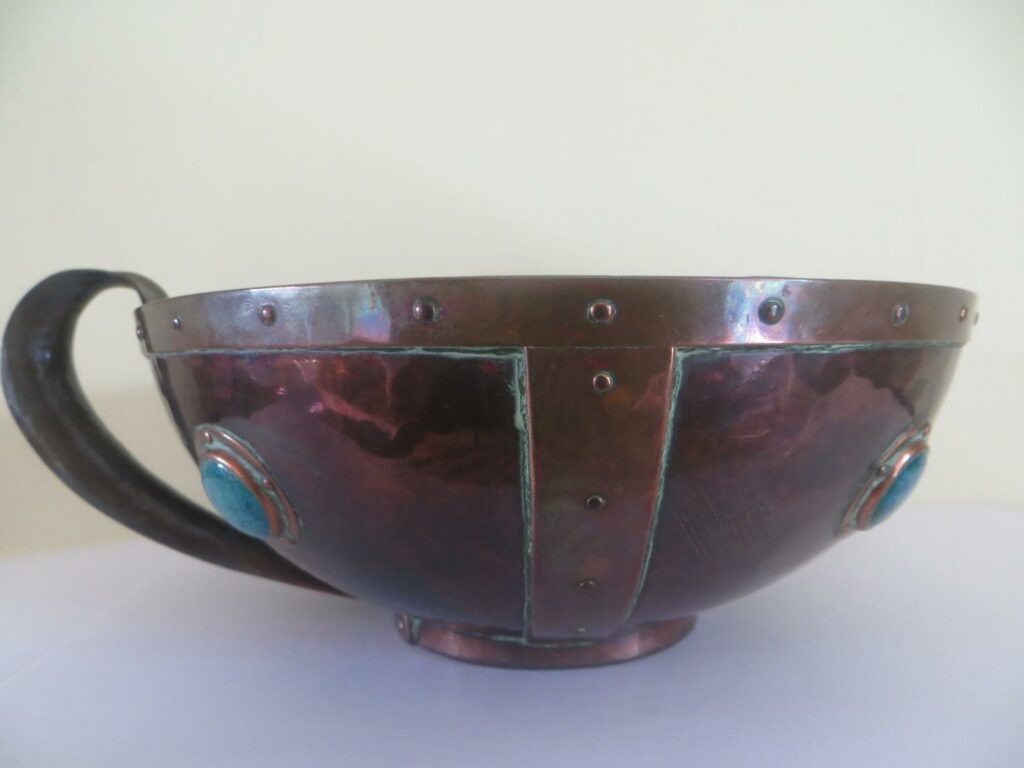
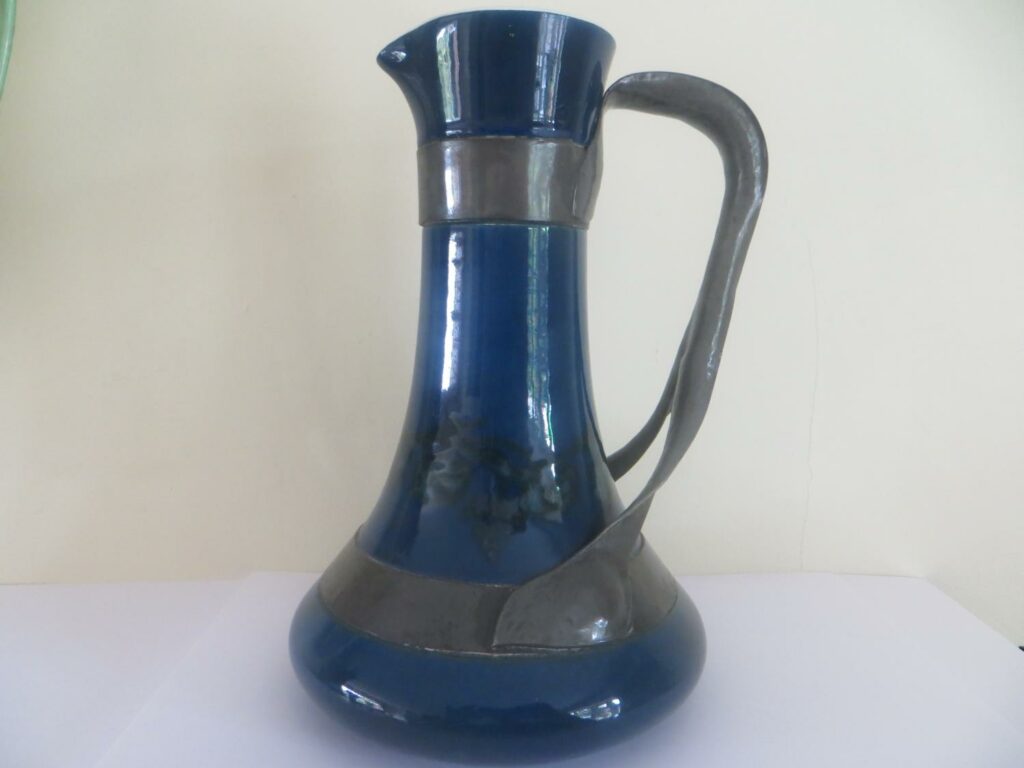
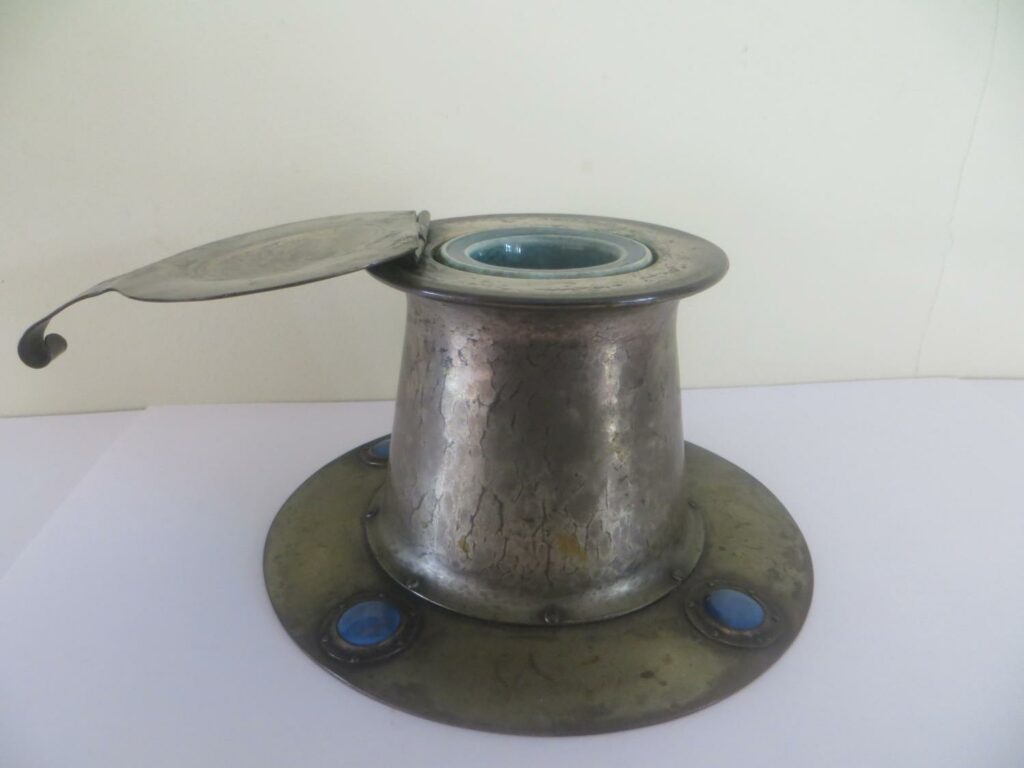
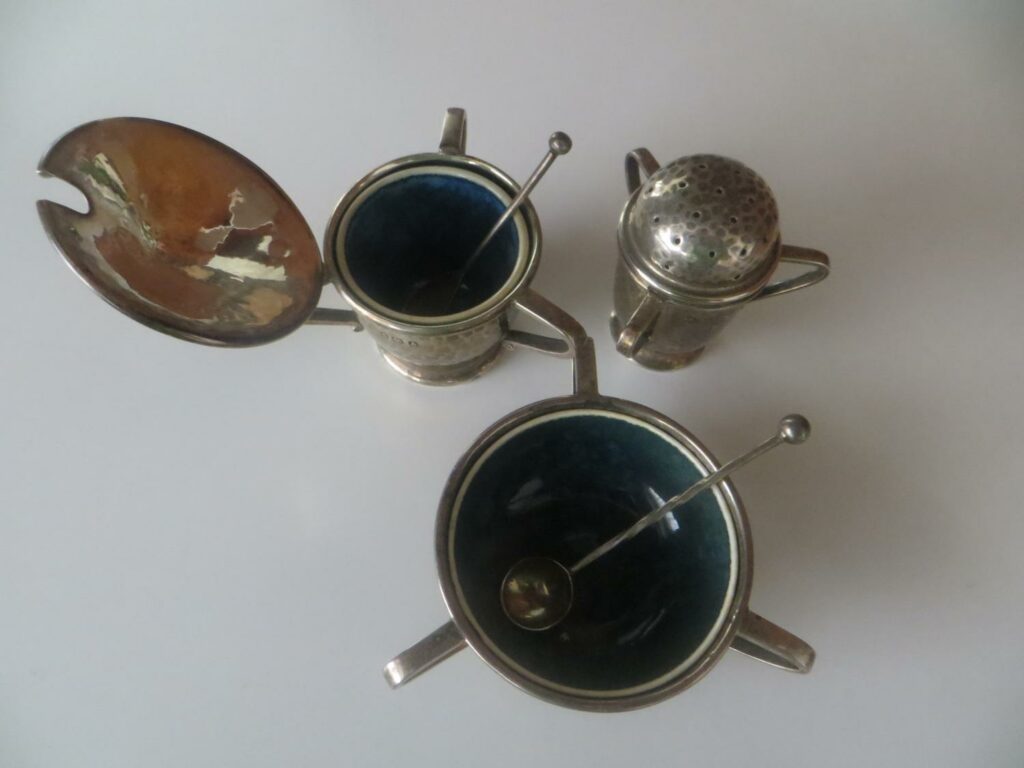
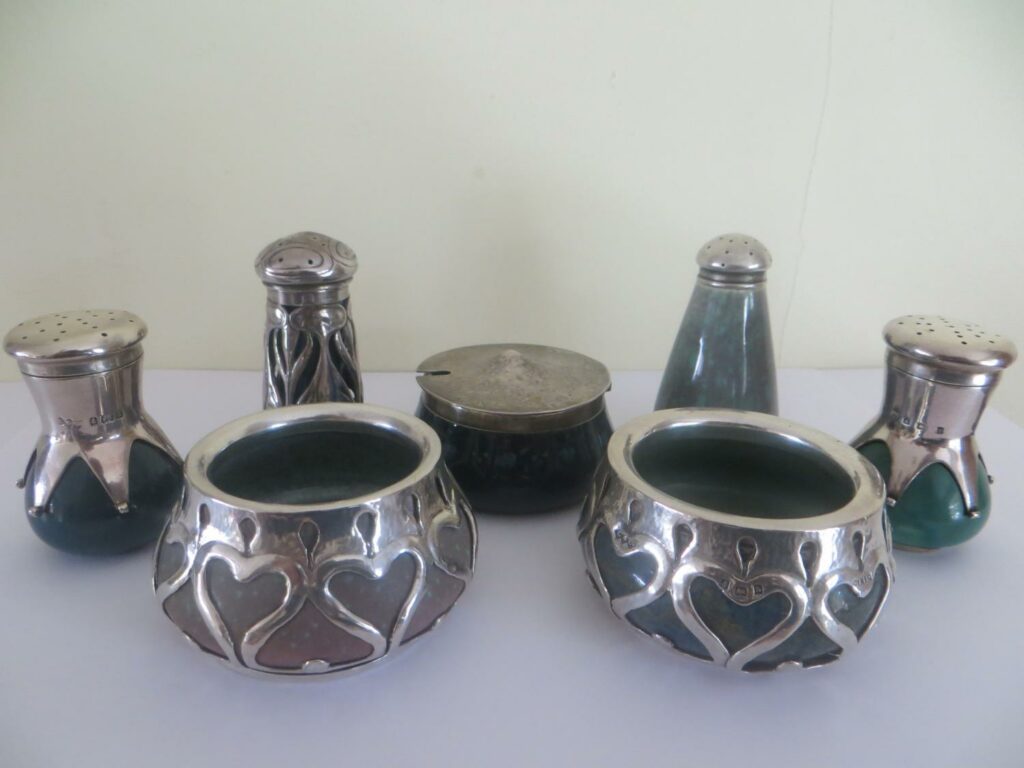
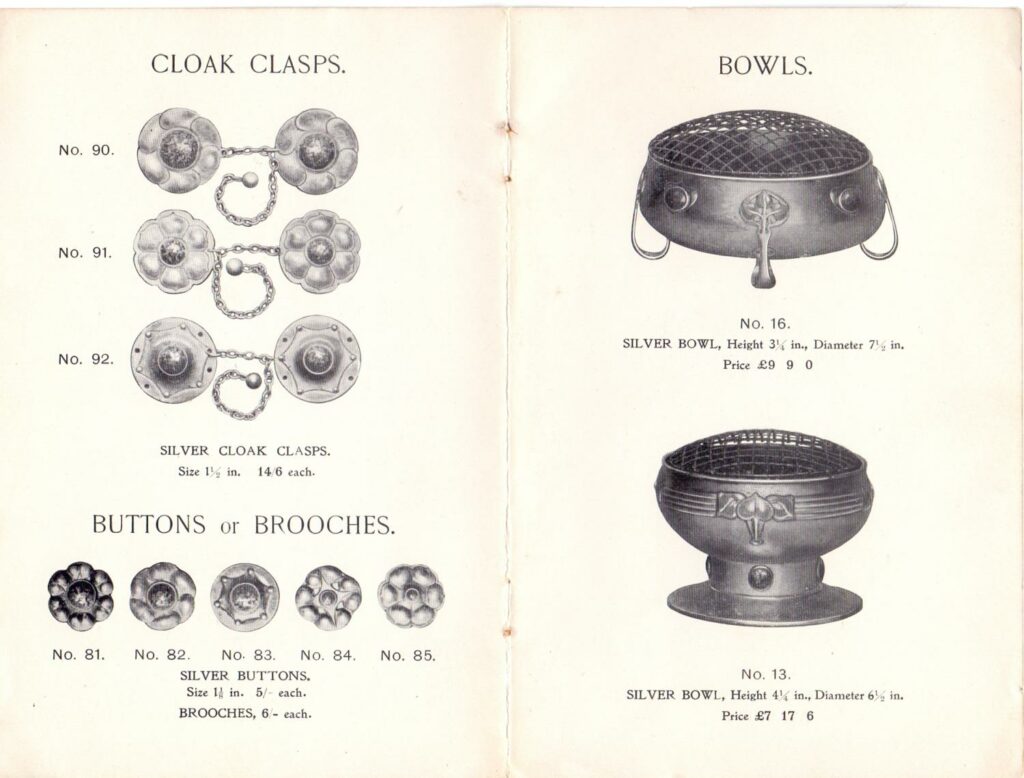
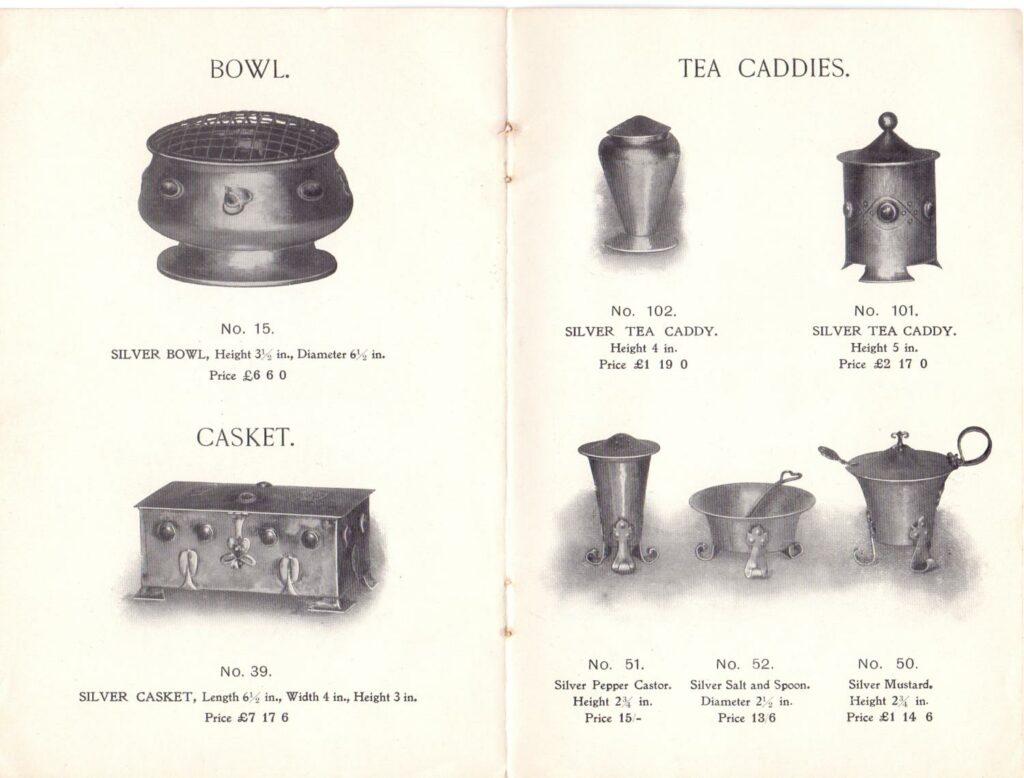
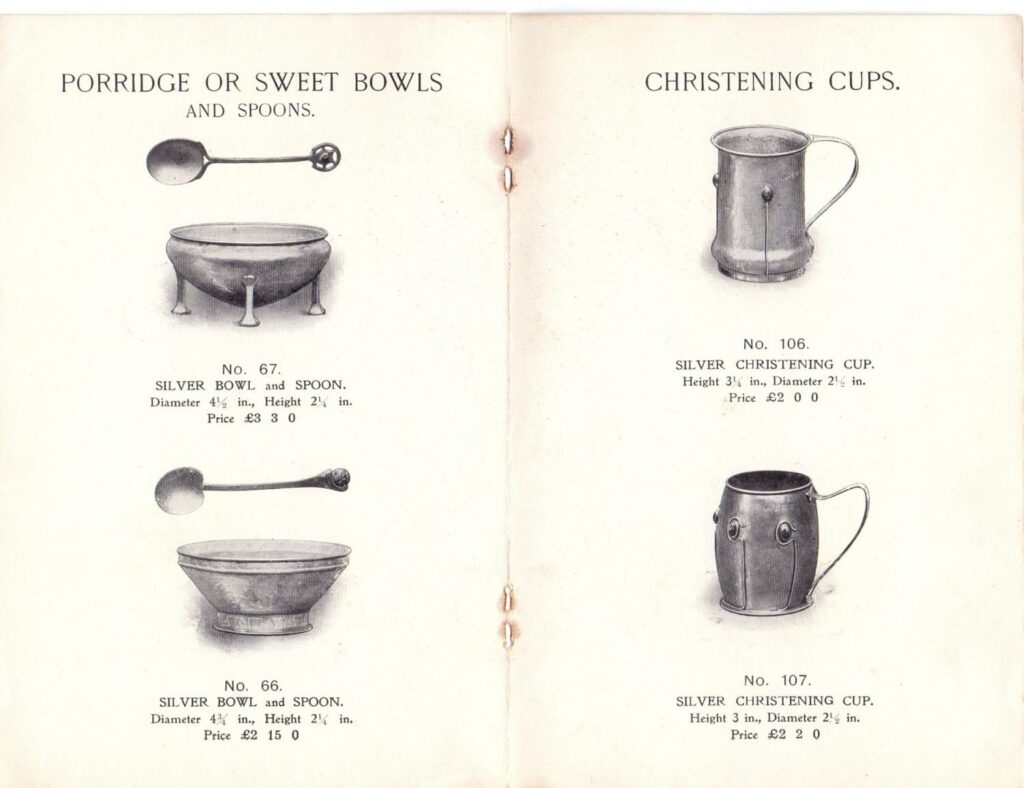
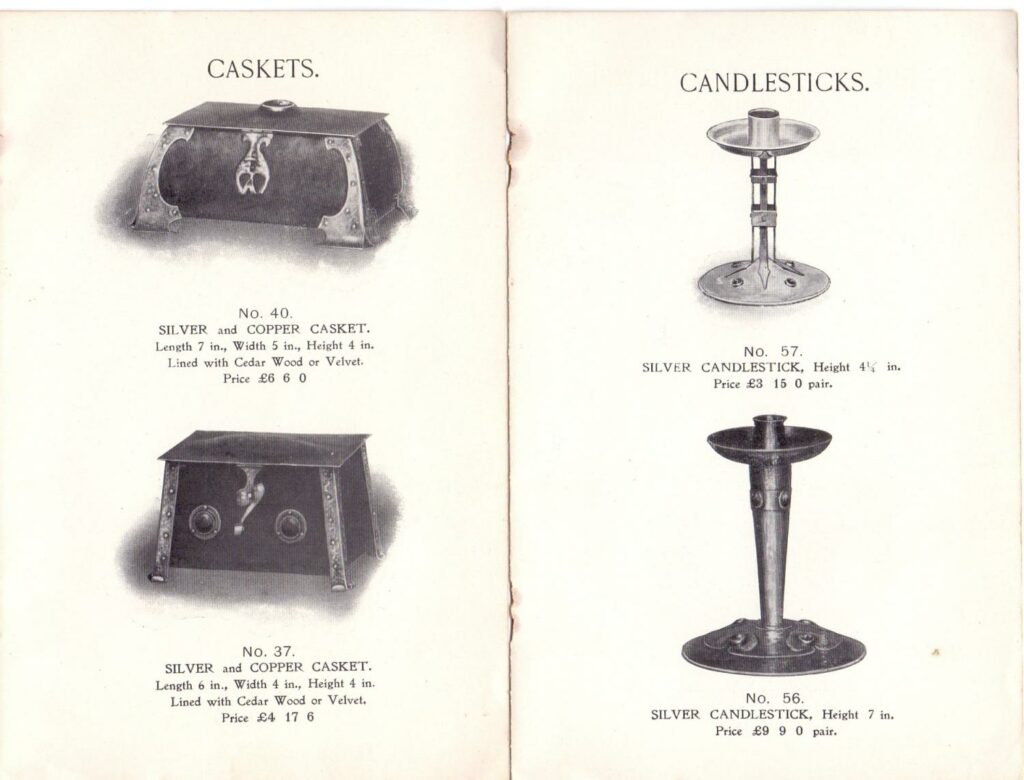
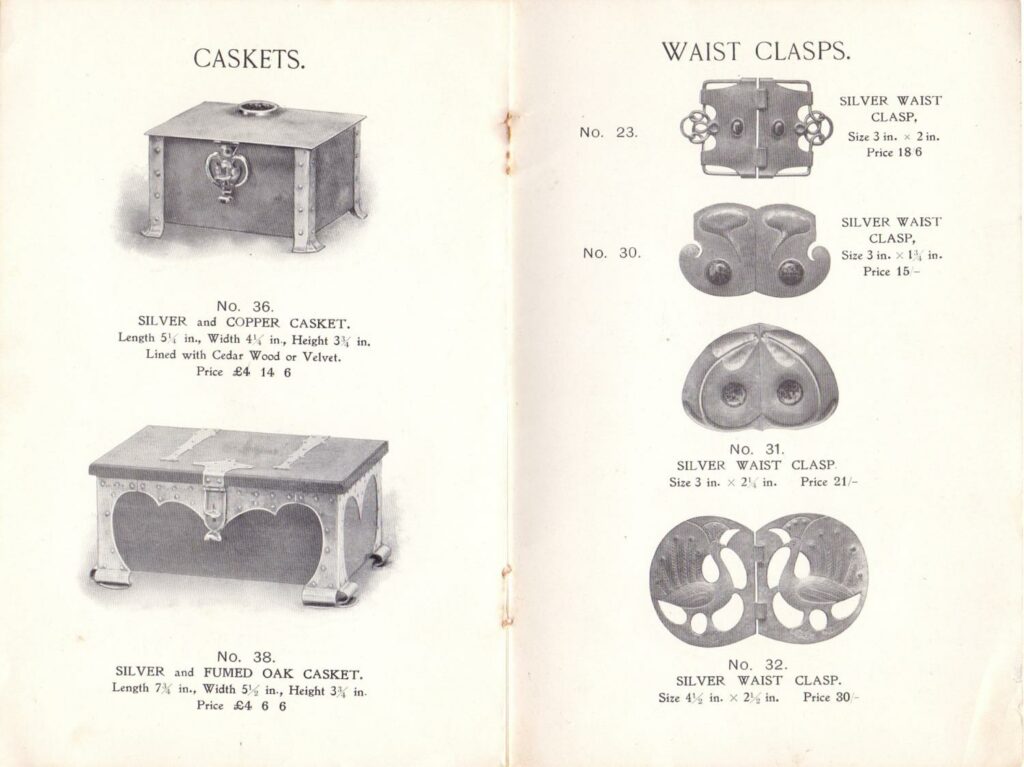
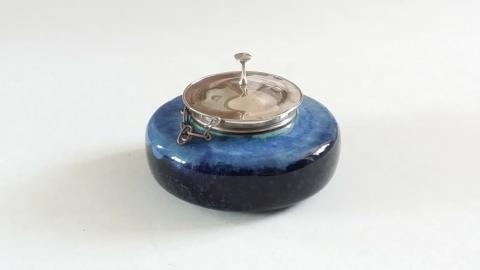
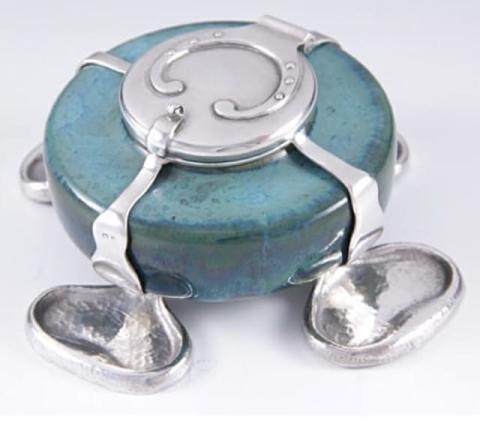
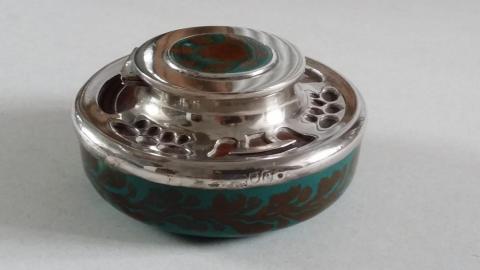
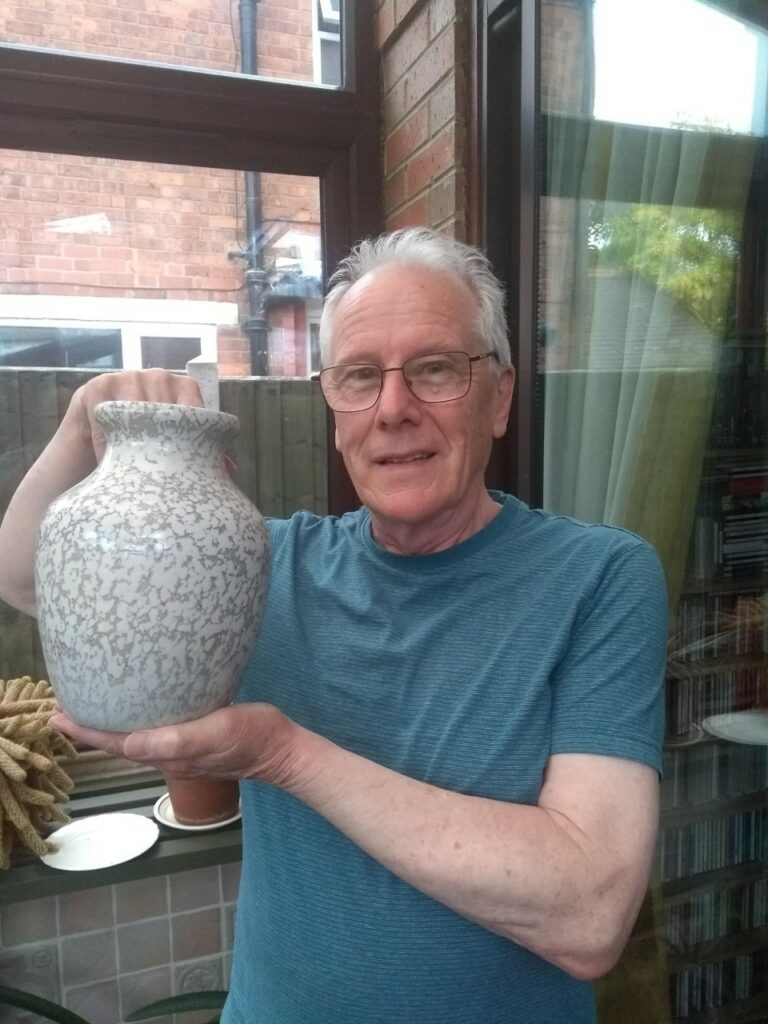
Hello I have a Ruskin 1921 blue large vase but no nothing about it if you could help please